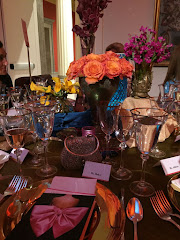So, what comes across on camera in a debate beyond the spoken word? What does the audience take away from your words other than your words? The answer is: your demeanor, your mannerisms, body language, command of language, knowledge of the subject of debate, general intelligence, character, temperament, and eventually it is your aura we see on screen. Your upbringing. Your very being. Your soul.
The following are simply a few tips for debate:
- Walk out on stage deliberately and calmly.
- Politely make eye contact and firmly shake hands with your opponent.
- Try to be the first to say to your opponent: "It is very nice to see you" which places you psychologically ahead of your opponent. If they answer with the same phrase, say: "Thank you", which again places you psychologically ahead of your opponent.
- Stand up straight and place your hands firmly on each side of the podium.
- Smile with your eyes from your heart.
- Look your opponent in the eyes when debating. Look alternately at the moderator as well. Look at the audience during your closing point.
- Speak a bit slower, louder and clearer than you normally do without sounding condescending.
- Never say "never." Leave yourself an "out."
- Avoid saying "always." Again, leave yourself an "out."
- Try not to repeat yourself and switch up your language, phrases and jargon often.
- Don't say "um", "and" or "uh." Don't pause for too long. Don't rush either.
- Pace yourself evenly and relax. Try to enjoy the moment and your time on the podium.
- Avoid common colloquialisms as people hear them so often, they tune them out. Then, they tune you out.
- Do not use the "you" message. Using the "You" message sounds accusatory.
- Use the "I" message. Using the "I" message sounds more positive.
- Truisms are better than colloquialisms.
- Be pithy, succinct, concise and clear.
- Study your debate topic. Read books, encyclopedias, newspapers, search the Internet, and interview local college and university professors about your topic.
- Be determined, passionate and strong with conviction.
- Back up your opinions with facts. Cite your sources.
- No risk, no return. Competition has its stresses, then its rewards.
- Do not use humor, unless it is self deprecating. Laughing at yourself shows you have a sense of humor and humility. Laughing at someone else may risk offending them.
- Use your logic and wit.
- Don't talk about "woulda, coulda, shoulda."
- Talk about facts, numbers, data, and specific plans. Then, cite your sources.
- Be as open, spontaneous and persuasive as possible without becoming too animated or manic.
- Remember: Just the facts man. Facts, more facts and still more facts.
- Clothing is important. Expensive clothing is not necessary, but clean, fitted clothing is a must. One only needs one outfit. Classic, simple Chanel-style clothing always works. Less is more.









